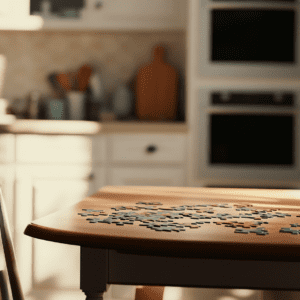Brain-training apps, word puzzles, memory games - these are often marketed as tools to keep your mind sharp and possibly even ward off dementia. But do these activities actually prevent memory loss, or are they simply fun distractions?
The short answer: brain games can help - but not in the way you might think.
Let’s explore what the science says about brain exercises, their impact on cognitive health, and how they fit into a bigger picture of dementia prevention.
What Are Brain Games?
Brain games refer to puzzles or digital tools that aim to improve mental functions like memory, attention, problem-solving, and processing speed. Examples include:
- Crossword puzzles
- Sudoku
- Matching games
- Brain-training apps like Lumosity or Peak
- Reading comprehension exercises
These games are often promoted as a way to "train your brain" much like you would train a muscle. But can they actually protect you from cognitive decline?
What the Research Shows
According to Harvard Health, brain games can improve the specific skill you’re practicing, such as remembering sequences or reacting quickly. But these improvements often don’t transfer to real-life memory or decision-making.
👉 Harvard’s take on brain games
In other words, becoming a crossword master might not help you remember where you put your keys - but it can keep your mind engaged and promote routine mental stimulation, which still has value.
WebMD notes that mentally stimulating activities like puzzles, reading, or learning a new skill may delay cognitive decline in some people - but they are most effective when combined with physical activity, good sleep, and social engagement.
👉 WebMD: Preventing Dementia with Brain Exercises
A key idea in dementia prevention is building cognitive reserve - the brain’s resilience to damage. Regular learning, curiosity, and new experiences are what really move the needle here. That’s where brain games may help, especially when they introduce novelty and challenge.
Reading and Learning Matter More
A 2024 review highlighted by Medical News Today suggests that reading, learning new things, and mentally engaging hobbies have more lasting impact than repetitive games alone. Lifelong learning - whether it’s picking up a new language, playing an instrument, or exploring new topics - strengthens the brain in deeper, more transferable ways.
So, can brain games prevent memory loss? Not entirely - but they can be a helpful part of a bigger cognitive health strategy. Think of them like snacks in your brain’s diet. They're great in moderation, especially when paired with "main meals" like sleep, movement, social connection, and curiosity-driven learning.








